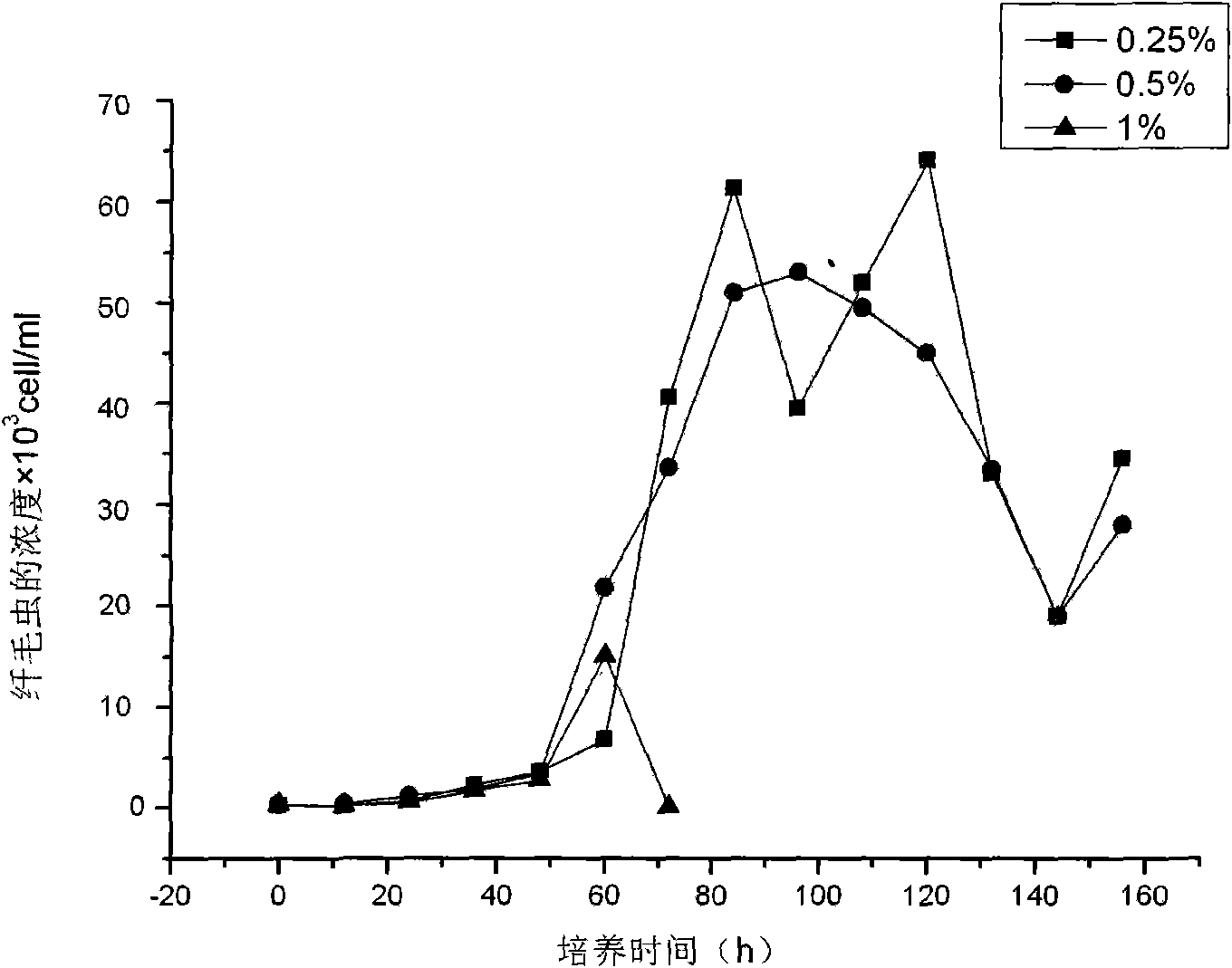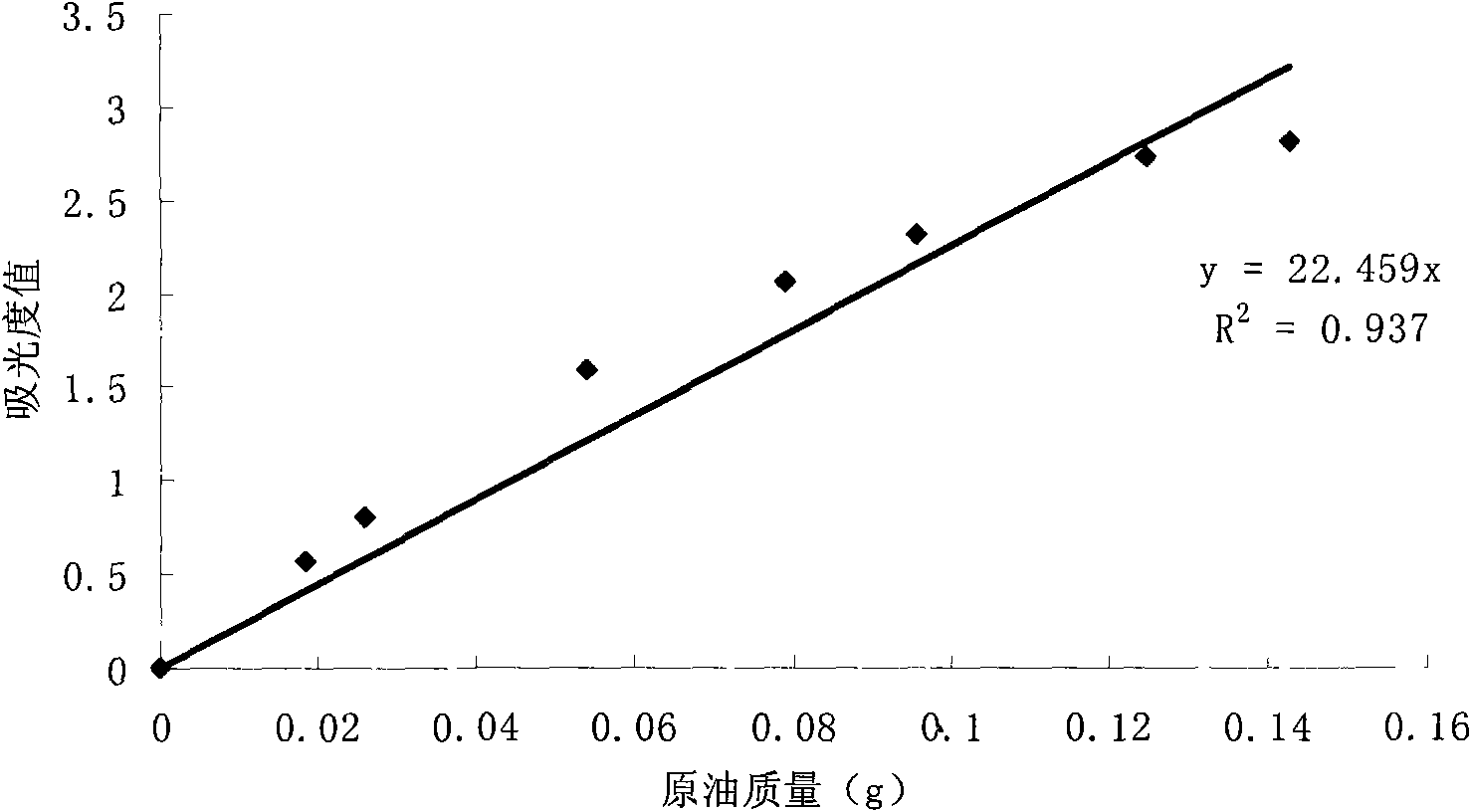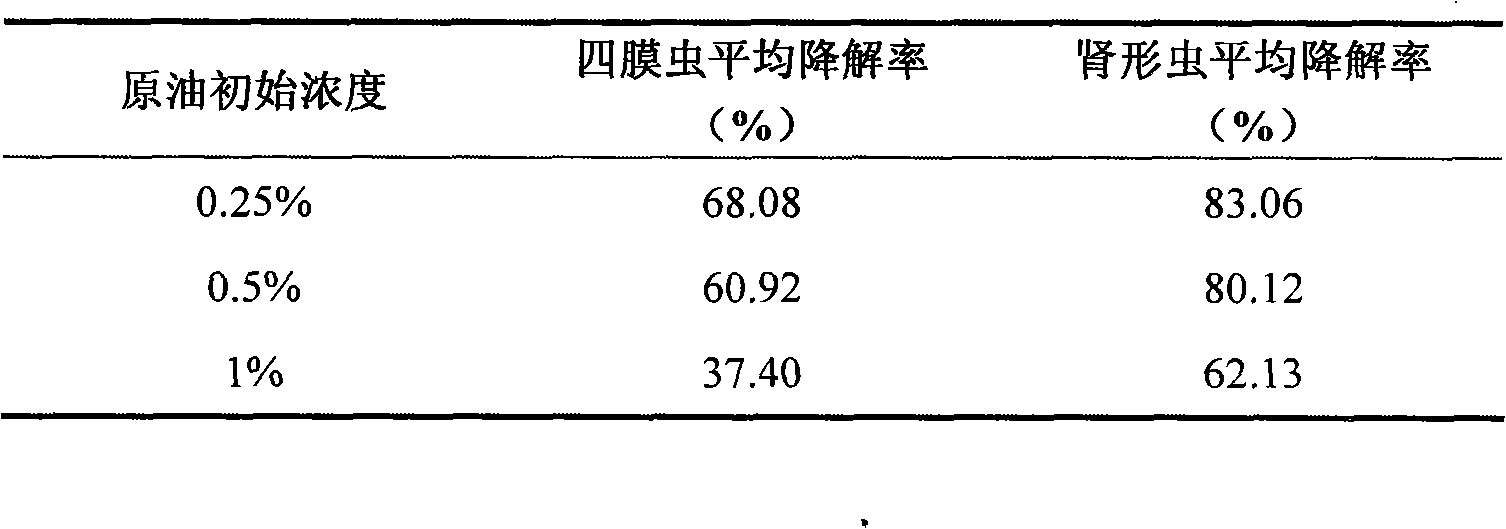Method for degrading crude oil with protozoan infusorian
A protozoa and ciliate technology, applied in the fields of biotechnology and environmental science, can solve the problems of cumbersome screening steps and easy degradation, and achieve the effect of promoting governance and easy cultivation.
- Summary
- Abstract
- Description
- Claims
- Application Information
AI Technical Summary
Problems solved by technology
Method used
Image
Examples
Embodiment 1
[0036] Embodiment 1, application Tetrahymena sp. degradation petroleum:
[0037] A. Separation and purification of ciliate populations from the environment: collect protozoan communities from oil-polluted waters or soil, and use wheat grain culture medium to expand the population in the laboratory. The operation steps are: absorb a tetrahymena Tetrahymena sp. , expand the culture with the wheat grain culture medium to obtain a single population of ciliates;
[0038] Among them: the wheat grain culture solution is to add 1000 ml of water to 5 grams of wheat grains, cook until the grains are cracked, put it for 24 hours, and take its liquid juice.
[0039] B. Domestication of ciliate populations: Add such as 0.5% crude oil in a weight ratio to the above-mentioned isolated and purified ciliate population culture solution, shake and cultivate in a constant temperature shaker, and domesticate for 3-5 days;
[0040] Wherein: the shaking culture condition of constant temperature sha...
Embodiment 2
[0065] Embodiment 2, according to the above-mentioned Tetrahymena method measurement reniform worm (Colpoda sp.) crude oil degradation rate, under the condition that crude oil concentration is respectively 0.25%, 0.5% and 1%, reniform worm (Colpoda sp.) to crude oil The degradation rates were 83.06%, 80.12% and 62.13%, respectively.
[0066] Table 1.
[0067] Degradation Rate of Crude Oil by Tetrahymena sp. and Colpoda sp.
[0068]
PUM
 Login to View More
Login to View More Abstract
Description
Claims
Application Information
 Login to View More
Login to View More - R&D
- Intellectual Property
- Life Sciences
- Materials
- Tech Scout
- Unparalleled Data Quality
- Higher Quality Content
- 60% Fewer Hallucinations
Browse by: Latest US Patents, China's latest patents, Technical Efficacy Thesaurus, Application Domain, Technology Topic, Popular Technical Reports.
© 2025 PatSnap. All rights reserved.Legal|Privacy policy|Modern Slavery Act Transparency Statement|Sitemap|About US| Contact US: help@patsnap.com



